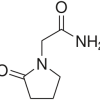I'm currently investigatin in mercury toxicity as the cause of my symptoms. The symptoms in your Google document sound very familiar.
I found a connection between Memantine and Methylmercury:
Neurotox Res. 2013 Oct;24(3):320-37. doi: 10.1007/s12640-013-9386-3. Epub 2013 Mar 16.
Protective effects of memantine against methylmercury-induced glutamate dyshomeostasis and oxidative stress in rat cerebral cortex.
Liu W1, Xu Z, Deng Y, Xu B, Wei Y, Yang T.
Methylmercury (MeHg) is one of the ubiquitous environmental toxicant that leads to long-lasting neurological deficits in animals and humans. The identification of the underlying mechanisms has been a main focus of research in the neurotoxicology field. Glutamate (Glu) dyshomeostasis and oxidative stress have been identified as two critical mechanisms mediating MeHg-induced neurotoxicity. However, little has been known of the interaction between these two mechanisms that play in MeHg poisoning in vivo. We, therefore, developed a rat model of MeHg subchronic poisoning to evaluate its neurotoxic effects and investigated the neuroprotective role of memantine, a low-affinity, noncompetitive N-methyl-D-aspartate receptors (NMDARs) antagonist, against MeHg-induced neurotoxicity. Ninety rats were randomly divided into five groups: control, memantine control, MeHg-treated (4 and 12 μmol/kg), and memantine pretreated. Administration of 12 μmol/kg MeHg for 4 weeks significantly elevated total Hg levels, disrupted Glu metabolism, overexcited NMDARs, and led to intracellular calcium overload, which might be critical to excessive reactive oxygen species (ROS) formation in cerebral cortex. Meanwhile, MeHg administration reduced non-enzymatic (non-protein sulfhydryl, NPSH) and enzymatic (superoxide dismutase, SOD and glutathione peroxidase, GSH-Px) antioxidants; caused lipid, protein, and DNA oxidative damage; and enhanced neurocyte apoptosis in cerebral cortex. Moreover, glutamate/aspartate transporter (GLAST) and glutamate transporter-1 (GLT-1) appear to be inhibited by MeHg exposure. Pretreatment with memantine at a dose of 5 μmol/kg significantly prevented MeHg-induced alterations of Glu metabolism and oxidative stress, alleviated neurocyte apoptosis, and pathological injury. In conclusion, the results suggested that Glu dyshomeostasis and oxidative stress resulting from MeHg exposure contributed to neuronal injury. Memantine possesses the ability to attenuate MeHg-induced neurotoxicity through mechanisms involving its NMDARs-binding properties and indirect antioxidation.
https://www.ncbi.nlm...pubmed/23504438



















































